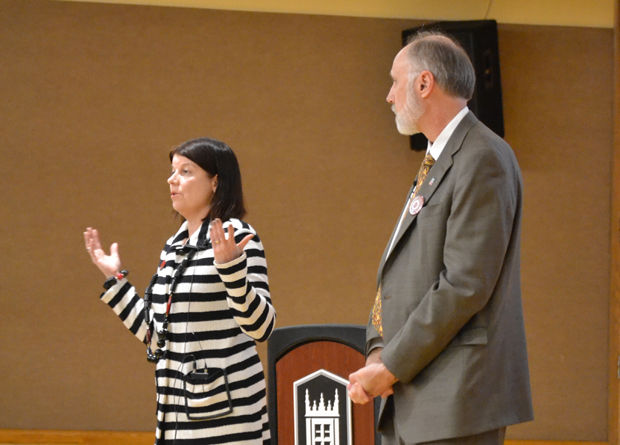Feedback wanted on program prioritization reports to be released
April 28, 2016
Graded program prioritization reports are expected to be completed and turned in Saturday.
Program prioritization, which began in 2014, uses task forces to create reports that review 223 academic programs and 236 administrative programs to influence the allocation of university funds.
Academic programs are generally degrees offered by NIU, while administrative programs are any operations or services that support the degree.
Once the reports are submitted, NIU will work to make the reports available by 3 p.m. Monday. The reports will have an option to submit anonymous or attributed feedback, which will be available until May 23.
“Certainly you can provide feedback directly to the program leaders… or/and you can provide it through the website,” said Carolinda Douglass, vice provost for Academic Planning and Development, at a town hall meeting Wednesday.
The reports that will be released Monday will likely have an introduction, program categorization rubric, results, recurring themes, general comments, recommendations and categorization of programs. These results will be made public while the narratives will only be able to be accessed with a login, Douglass said.
“People wrote the narratives with an understanding that they were being used internally and we are trying to respect that with putting a login,” Douglass said.
Administrative and academic task forces have separate grading scales and initially scored programs on quality and performance. The programs then must be placed in one of five categories: candidate for enhanced resources, no change in resources, reduced resources, transformation or subject to additional review. The goal is to equally distribute the graded programs into each category.
Once the reports and feedback are submitted May 23, action plans will be developed and completed by July 15.
Action plans will be reactions to the task force recommendations. These reactions will be categorized into no action, routine action or significant new action. If significant new action is proposed then the action plan must provide follow-up steps with a timeline, impact on individuals and resources and anticipated outcomes. These plans will be developed by program leaders, vice presidents, division leaders and deans, according to a presentation at the town hall meeting Wednesday.
“The actions related to the program prioritization recommendations cannot all be implemented immediately,” said Provost Lisa Freeman at the town hall. “… We may be able to start doing some things in Fiscal Year [2017], more in [FY 2018], but this is a longer term process, changes will be initiated over, probably, four to five years.”
Freeman said the action plans and task force recommendations will be used immediately to influence hiring decisions.







